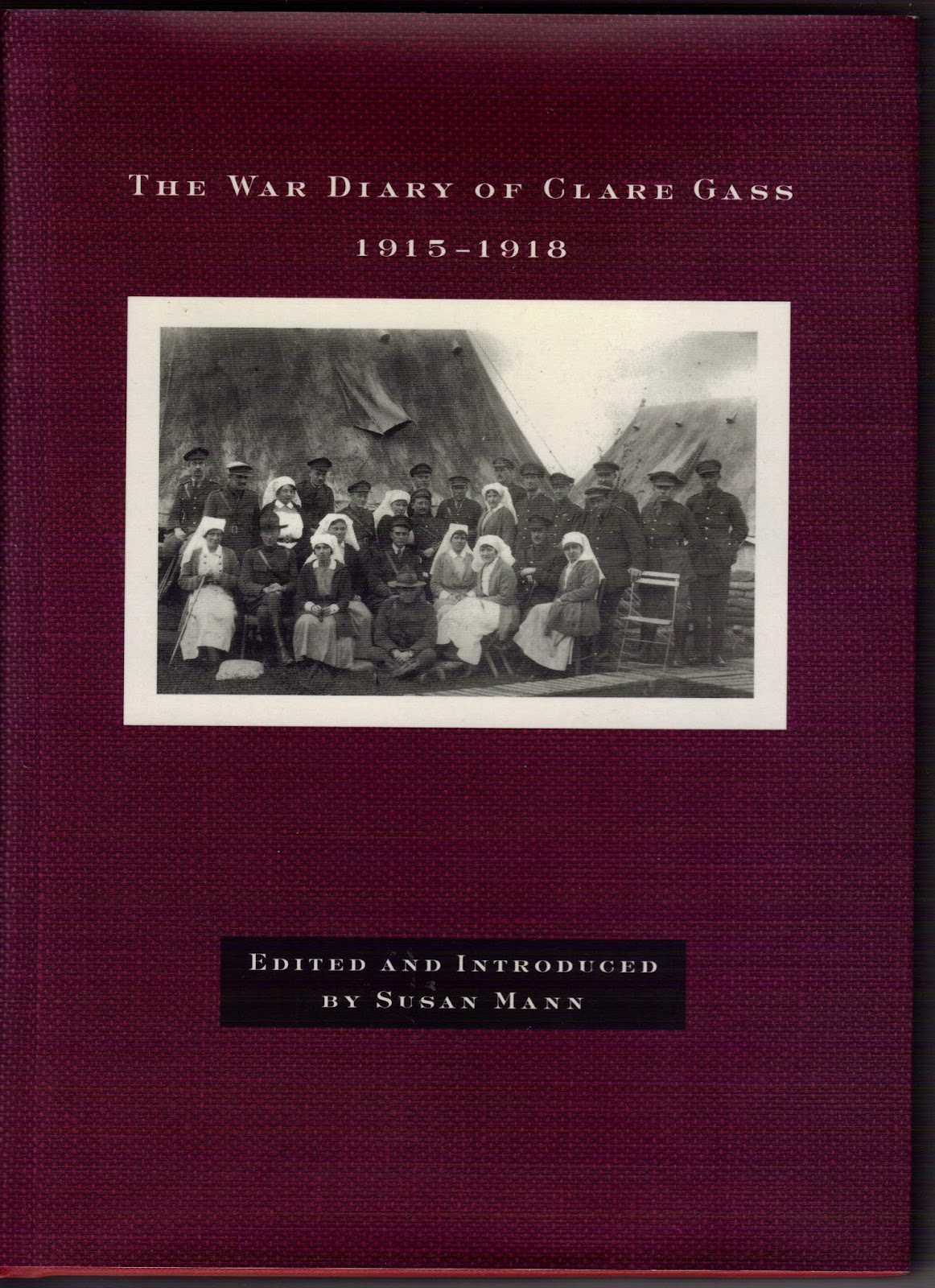Susan Mann, ed. and intro., The War Diary of Clare
Gass, 1915-1918. McGill-Queen’s
University Press, 2000, xlvii + 306pp.
[hbk. £24.95].
Focusing
on a Canadian nurse’s experiences, this scholarly edition of a war diary presents
an authentic voice of the time. Clare Gass arrived in north-east France in May
1915 and spent most of the First World War about 40 miles from the front. She
was soon plunged into what the Introduction calls ‘the behind-the-scenes reality
of war: that the broken bodies of young men were under the care of strong,
competent women.’ (p.xxxix) The diary brings this reality to life in brisk,
vivid accounts of the daily routine interspersed with Gass’s own reactions and
attempts to come to terms with it all. Any initial euphoria about the conflict
gave way to a weary fatalism: ‘Those poor lads, tired in body and spirit, sick
of the war, asking for their homes’ (p. 39). Sympathy led her to question the
war itself as she repeatedly observed the ‘poor lads & so uncomplaining’,
‘good & patient’ with their ‘dreadful wounds… These are the horrors of war,
but they are too horrible. Can it be God’s will or only man’s devilishness. It
is too awful.’ (p.26) And again: ‘… some terrible cases, oh so much better
dead… Oh why must such things be. All are so brave, & yet those who are not
badly wounded are so tired of the war, at least those who have been long in the
trenches – tired in such a hopeless way.’ (p.32)
Other days were ‘petty rounds of
irritating concerns and duties’, and some of her critique was practical, over
the shortcomings of hospital management – ‘an abomination. Everyone is
disgusted with it’, and medical students – nice boys, as orderlies a great
disappointment’ (although they improved later).
At the turn of successive years
she sums up:
- The last day of a sad year. In spite of worries we have tried
to make the best of things at most times. Surely this terrible war will
soon be over. – p.90, 31-12-1915
- In our work in the Hospital we have been happy – the days
full of interest… Yet when one looks at the toll of lives lost [the year]
has been long indeed. Surely this coming year will bring peace to the
world. - p.154, 31-12-1916
Contrivances for making life
bearable recur in the diary entries, which are far from being all doom-laden
and preoccupied with horrors, although there were gas cases, bombardments,
evacuation at short notice and personal tragedy – a cousin turning up in an
‘insane hospital’ with shell shock, one brother wounded, and another killed in
action after enlisting, under age, against her entreaties.
As well as the Introduction, Susan Mann provides
notes, appendices and photographs, many taken by Clare Gass herself at the
time. She has done an excellent service to historians in bringing this document
to wider notice, as an important
supplement to official sources. One problem anti-war readers may have with the
book, however, is that it tends to fall into the trap of taking (the) war for
granted: living it, normalising it, and losing sight of any need for a
rationale. Thus its emphasis on getting the job done and simply dealing with
human suffering as best one can [an occupational hazard for health
professionals?] may be seen to preclude any (other than rhetorical) seeking of
reasons why.
L. W., July 2001
Slightly adapted from Medicine, Conflict
& Survival vol. 17, no.4, 2001 pp. 374-5.

No comments:
Post a Comment